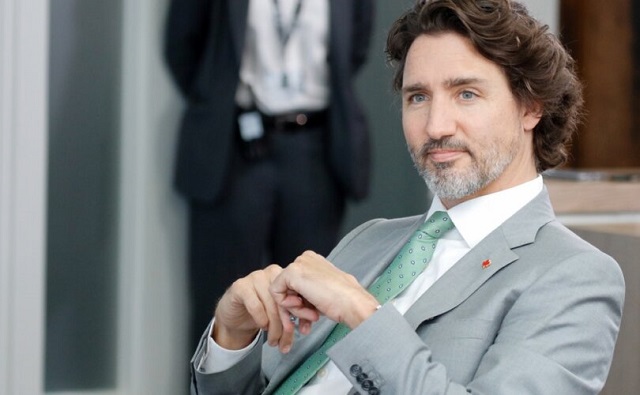Community
Calkins … Currently (for January)
In 2017, we will be celebrating Canada’s 150th Birthday. There are plenty of events happening all over Canada and in Central Alberta. If you have any event and you would like it published here in Calkins…Currently or on any of my social media outlets, please contact me by replying to this email and I will be sure to help spread the word. I am looking forward to visiting as many events as I am able as we celebrate all year long.
Carbon Tax = A Tax on Everything!

Prime Minister Trudeau and his government will be imposing a national carbon pricing scheme on all jurisdictions across Canada by 2018, despite having promised to work collaboratively with provinces and territories. In fact, while the PM announced his plan in the House of Commons, provincial and territorial environment ministers were blindsided during a simultaneous meeting held in Montreal.
Under the Conservative Government, we fought hard to keep money in the pockets of hardworking Canadian families – this Liberal scheme will cost Canadians more than 11 cents per litre when they fill their vehicles and the carbon tax will cost the average Canadian family $2500 a year.
My colleague, Shannon Stubbs, Member of Parliament for Lakeland and Official Opposition Deputy Critic for Natural Resources is sponsoring petition e-585 that was initiated by Bernard Hancock, an oil and gas worker from Vancouver, BC currently employed on a rig near Grande Prairie, who has struggled to find work during the downturn. It is crucial that we stand up to the Trudeau government and show united opposition against this tax that will make life more expensive for all Canadians.
If you agree that Prime Minister Trudeau is wrong to unilaterally impose this job-killing, cash-grabbing tax, please sign this petition and please take the time to share and promote this petition.
Canada Summer Jobs – Employers
The 2017 Canada Summer Jobs (CSJ) application period for employers is from December 7, 2016 to January 20, 2017.
Canada Summer Jobs is a Government of Canada initiative. It provides funding for not-for-profit organizations, public sector employers and small businesses with 50 or fewer full-time employees to create summer jobs for students between the ages of 15 and 30.
The application form as well as the applicant guide are currently available at www.canada.ca/canada-summer-jobs. You can submit your application online, by mail or in person at any Service Canada Centre.
We encourage you to submit your 2017 application online. By doing so, you will benefit from a fast, easy-to-use, and secure way of applying as you will:
- have access to the Canada Summer Jobs application 24/7, from any location, allowing you to complete it at your convenience;
- ensure your application is received immediately by Service Canada;
- receive an instant acknowledgement confirming that your application has been received; and,
- avoid postal delays.
There are two systems available to enable you to apply online:
- Grants and Contributions Online Services (GCOS): If you already have a GCOS account, please use this online platform to submit an online application; or
- CSJ online application form.
Are You Ready for Canada’s 150th Birthday?!
What are you doing for Canada 150 in your classroom or in your group?
Experiences Canada 150&Me is a federally-funded Signature Canada 150 Initiative offering an once-in-a-lifetime opportunity for young Canadians to join in a national conversation about the future they want for their country.
Canada 150&Me starts by inviting youth ages 14-19 to answer the simple question, “What is the greatest challenge or opportunity facing Canada for your generation?” They can reply online using whatever creative media they choose – video, music, written word, or visual art. It’s an ideal way to integrate Canada’s 150th celebrations into any classroom. Deadline for submissions is February 1, 2017.
If you are between the ages of 14 – 19, you could be selected as one of the first group of 150 youth offered the chance to travel and experience a week of amazing cultural and educational activities, joined by like-minded youth from across Canada, at one of four Regional Experiences Canada150& Me Forums in Vancouver, Winnipeg, Montreal or Halifax. Each regional event will be themed on one of the broader topics the youth themselves have identified as the most important with the intention of inspiring them to convert a passionate interest into a life-long commitment to community engagement.
The second leadership group of 150 youth will be chosen to travel to Ottawa, to represent their community, share their ideas with government and business leaders, and throughout the rest of the week, take on key volunteer roles in the Canada 150 celebrations. This will be a Canada Day to remember!
For more information on this exciting program, go to http://www.experiencescanada.ca/150.
Compassion Project – A Better World Canada
The head offices of A Better World Canada are located in Lacombe, Alberta, but for more than 25 Years, Eric Rajah and his volunteers have been making a difference around the world. In recognition of Canada’s 150th Birthday, Eric and a Better World have launched the Community Compassion Project which encourages people to show compassion and make a different right here at home. A Better World Canada offers a variety of ways people can show they care and encourages all participants to submit their acts of kindness through their website, emailing [email protected], or by phoning 403-782-0325. If you use social media, you can follow along with the hashtag #compassion12.
Family Literacy Day – a Nationwide Reading Contest
Family Literacy Day is on January 27, 2017. Families are encouraged to report reading for 15 minutes as part of Family Literacy Day. Last year several communities participated in a contest to see which communities read the most on a per-capita basis. Last year the community of Donalda won the competition, but from what I understand the riding of Red Deer – Lacombe has several communities participating in this event. For more information on Family Literacy Day, visit the website by clicking here and if you are wondering if your community is participating the in the Read for 15 Challenge, contact your local library.

Forum for Young Canadians
Would you like to contribute to the future of your community and your country? Are you interested in decision-making and politics? Forum for Young Canadians offers a fun and exciting opportunity to meet other engaged students. Take part in an incredible week behind the scenes of the world of federal politics on Parliament Hill. For nine months, Forum will support you in your effort to make a difference. You will learn to communicate, collaborate and transform your ideas into meaningful community action. Find below some of the exciting activities that take place during the sessions. On top of all these meetings and discussions, you’ll also have the opportunity to get to know your fellow participants through social events. If this sounds like something for you, click here for more information and to apply.
Action for Happiness
Action for Happiness, Blackfalds, encourages members to create more happiness in their community while promoting sharing, helping out others and getting to know others friends and neighbours in the community. Members are Blackfalds’ children ages 2 and up. For more information on the Action of Happiness program, check them out on Facebook!
Crimewatch Meeting – Lacombe
- Ponoka Secondary Campus Remembrance Day – Ponoka
- Remembrance Day Service – Ponoka
- Remembrance Day Cenotaph Service – Sylvan Lake
- AgriTrade Meet n Greet – Red Deer
- Alberta Jobs Taskforce Roundtable
- Town of Bentley Santa Claus Breakfast
- Village of Alix Parade of Lights
- Town of Blackfalds Christmas Party
- Sylvan Lake Chamber of Commerce Jingle Mingle
- Red Deer – Lacombe Constituency Christmas Open House
- Hope Mission Christmas Open House
Constituency Job Connection
If you are an employer looking to hire, let us know! I will publish 3 positions for jobs in the constituency – Calkins…Currently will be published on the 15th of every month. Submit your employment opportunities by clicking here.
Red Deer – Trail Appliances in Red Deer is looking for a Journeyman Lineman. If you are interested in more details on this position, click here.
Lacombe – Boston Pizza in Lacombe is looking for a cook. Click here for more details.
Eckville – The Eckville Family Restaurant is looking for a manager. If you have experience and want more details on this position, click here.
We would appreciate it if you tell others about receiving Calkins…Currently. We have added a link on www.blainecalkinsmp.ca so that others can join the mailing list. Thank you!
Community
SPARC Red Deer – Caring Adult Nominations open now!
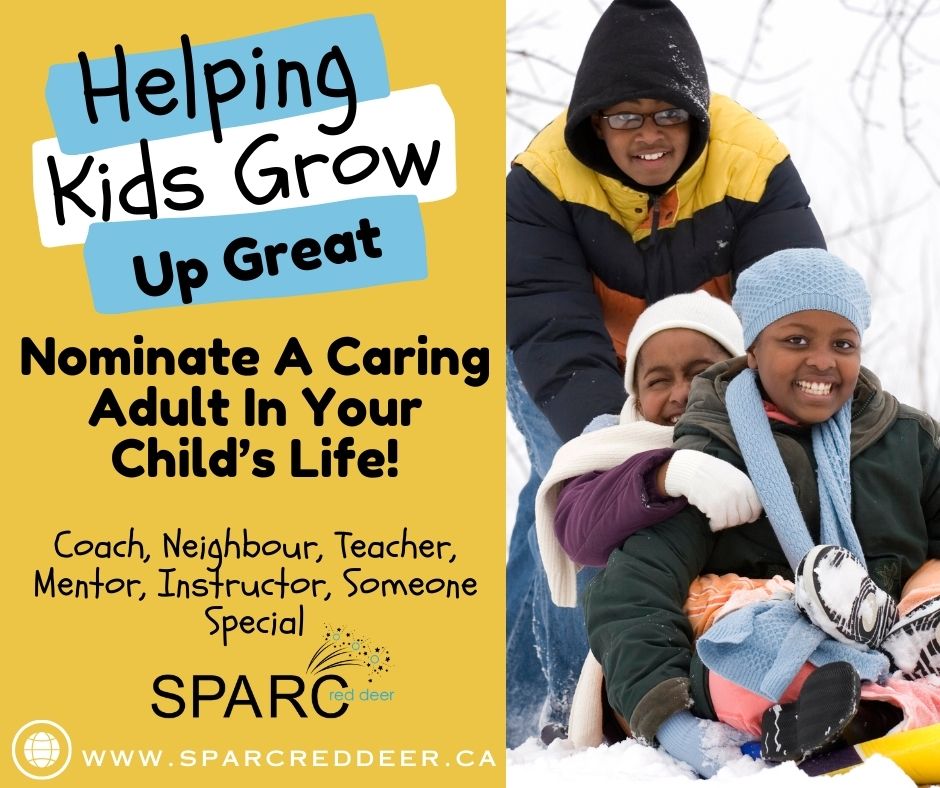
Red Deer community let’s give a round of applause to the incredible adults shaping the future of our kids. Whether they’re a coach, neighbour, teacher, mentor, instructor, or someone special, we want to know about them!
Tell us the inspiring story of how your nominee is helping kids grow up great. We will honour the first 100 local nominees for their outstanding contributions to youth development. It’s time to highlight those who consistently go above and beyond!
To nominate, visit Events (sparcreddeer.ca)

Addictions
‘Harm Reduction’ is killing B.C.’s addicts. There’s got to be a better way

From the Frontier Centre for Public Policy
B.C. recently decriminalized the possession of small amounts of illicit drugs. The resulting explosion of addicts using drugs in public spaces, including parks and playgrounds, recently led the province’s NDP government to attempt to backtrack on this policy
Fuelled by the deadly manufactured opioid fentanyl, Canada’s national drug overdose rate stood at 19.3 people per 100,000 in 2022, a shockingly high number when compared to the European Union’s rate of just 1.8. But national statistics hide considerable geographic variation. British Columbia and Alberta together account for only a quarter of Canada’s population yet nearly half of all opioid deaths. B.C.’s 2022 death rate of 45.2/100,000 is more than double the national average, with Alberta close behind at 33.3/100,00.
In response to the drug crisis, Canada’s two western-most provinces have taken markedly divergent approaches, and in doing so have created a natural experiment with national implications.
B.C. has emphasized harm reduction, which seeks to eliminate the damaging effects of illicit drugs without actually removing them from the equation. The strategy focuses on creating access to clean drugs and includes such measures as “safe” injection sites, needle exchange programs, crack-pipe giveaways and even drug-dispensing vending machines. The approach goes so far as to distribute drugs like heroin and cocaine free of charge in the hope addicts will no longer be tempted by potentially tainted street drugs and may eventually seek help.
But safe-supply policies create many unexpected consequences. A National Post investigation found, for example, that government-supplied hydromorphone pills handed out to addicts in Vancouver are often re-sold on the street to other addicts. The sellers then use the money to purchase a street drug that provides a better high — namely, fentanyl.
Doubling down on safe supply, B.C. recently decriminalized the possession of small amounts of illicit drugs. The resulting explosion of addicts using drugs in public spaces, including parks and playgrounds, recently led the province’s NDP government to attempt to backtrack on this policy — though for now that effort has been stymied by the courts.
According to Vancouver city councillor Brian Montague, “The stats tell us that harm reduction isn’t working.” In an interview, he calls decriminalization “a disaster” and proposes a policy shift that recognizes the connection between mental illness and addiction. The province, he says, needs “massive numbers of beds in treatment facilities that deal with both addictions and long-term mental health problems (plus) access to free counselling and housing.”
In fact, Montague’s wish is coming true — one province east, in Alberta. Since the United Conservative Party was elected in 2019, Alberta has been transforming its drug addiction policy away from harm reduction and towards publicly-funded treatment and recovery efforts.
Instead of offering safe-injection sites and free drugs, Alberta is building a network of 10 therapeutic communities across the province where patients can stay for up to a year, receiving therapy and medical treatment and developing skills that will enable them to build a life outside the drug culture. All for free. The province’s first two new recovery centres opened last year in Lethbridge and Red Deer. There are currently over 29,000 addiction treatment spaces in the province.
This treatment-based strategy is in large part the work of Marshall Smith, current chief of staff to Alberta’s premier and a former addict himself, whose life story is a testament to the importance of treatment and recovery.
The sharply contrasting policies of B.C. and Alberta allow a comparison of what works and what doesn’t. A first, tentative report card on this natural experiment was produced last year in a study from Stanford University’s network on addiction policy (SNAP). Noting “a lack of policy innovation in B.C.,” where harm reduction has become the dominant policy approach, the report argues that in fact “Alberta is currently experiencing a reduction in key addiction-related harms.” But it concludes that “Canada overall, and B.C. in particular, is not yet showing the progress that the public and those impacted by drug addiction deserve.”
The report is admittedly an early analysis of these two contrasting approaches. Most of Alberta’s recovery homes are still under construction, and B.C.’s decriminalization policy is only a year old. And since the report was published, opioid death rates have inched higher in both provinces.
Still, the early returns do seem to favour Alberta’s approach. That should be regarded as good news. Society certainly has an obligation to try to help drug users. But that duty must involve more than offering addicts free drugs. Addicted people need treatment so they can kick their potentially deadly habit and go on to live healthy, meaningful lives. Dignity comes from a life of purpose and self-control, not a government-funded fix.
Susan Martinuk is a senior fellow at the Frontier Centre for Public Policy and author of the 2021 book Patients at Risk: Exposing Canada’s Health Care Crisis. A longer version of this article recently appeared at C2CJournal.ca.
-

 Business2 days ago
Business2 days agoBusiness investment key to addressing Canada’s productivity crisis
-

 International2 days ago
International2 days agoBrussels NatCon conference will continue freely after court overturns police barricade
-

 Jordan Peterson2 days ago
Jordan Peterson2 days agoJordan Peterson slams CBC for only interviewing pro-LGBT doctors about UK report on child ‘sex changes’
-
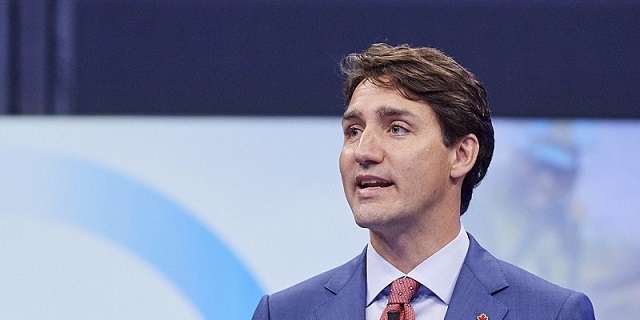
 Business2 days ago
Business2 days agoFederal budget fails to ‘break the glass’ on Canada’s economic growth crisis
-
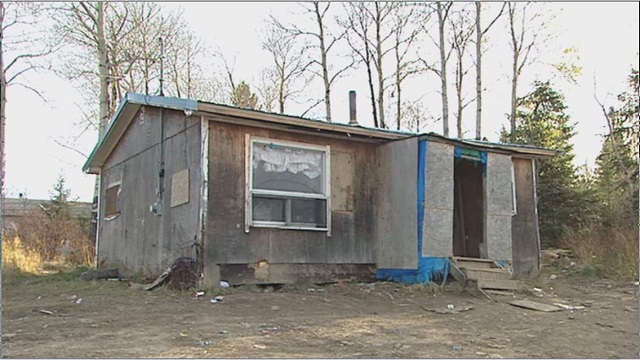
 Frontier Centre for Public Policy2 days ago
Frontier Centre for Public Policy2 days agoThe Smallwood solution
-

 Alberta1 day ago
Alberta1 day agoDanielle Smith warns arsonists who start wildfires in Alberta that they will be held accountable
-
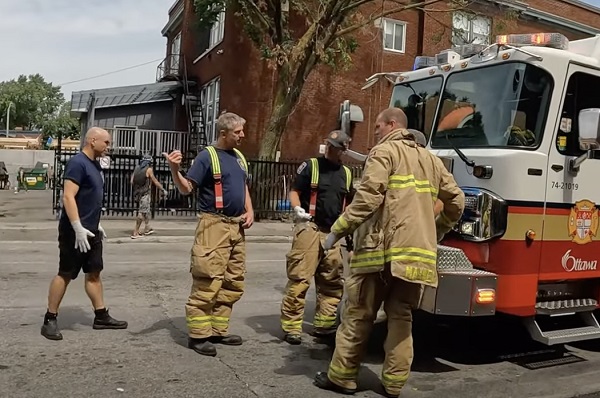
 Addictions2 days ago
Addictions2 days agoLiberal MP blasts Trudeau-backed ‘safe supply’ drug programs, linking them to ‘chaos’ in cities
-

 Agriculture2 days ago
Agriculture2 days agoBill C-282, now in the Senate, risks holding back other economic sectors and further burdening consumers



